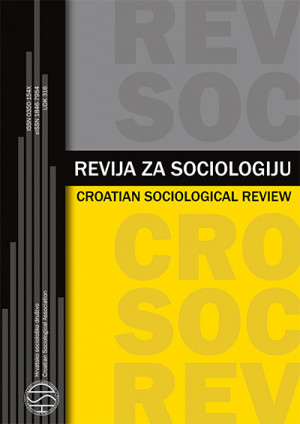Doprinosi li dnevno vrijeme korištenja medija predviđanju obrazovnih aspiracija učenika na završetku osnovne škole
Does Daily Media Screen Time Add to the Prediction of Educational Aspirations of Pupils Finishing Elementary School?
Author(s): Gordana Kuterovac-JagodićSubject(s): Theory of Communication, School education, Family and social welfare, Sociology of Education
Published by: Hrvatsko sociološko društvo
Keywords: traditional and new media; educational aspirations; parental expectations; parental support; educational resources;
Summary/Abstract: Adolescents spend a sizeable amount of daily time using media, consequently exposing themselves to an ecological techno-subsystem which, according to the ecological systems theory, may influence several aspects of their development, including educational aspirations. This research aimed to determine daily screen time 8th-grade pupils spent on social media, video games, and films, TV-series and videos, and to find whether the screen times, in addition to individual variables of gender and school achievement, family variables of parental education, support, expectations and educational and media resources, add to the prediction of preference towards grammars school versus vocational education. Besides, differences in screen times with respect to gender, school preferences, and part of the week (working days or weekends) were examined. The participants were 828 pupils attending the finishing grade of elementary schools in Zagreb, Croatia. The participants’ age ranged from 14 to 15, and 46.4 % of them identified themselves as female. The data was collected using self-reported questionnaires administered during school classes. Adolescents who aspire towards vocational schools spend 3 to 6 hours on screen per day, while adolescents with aspirations towards higher secondary education spend 1.5 to 3 hours. In addition to the GPA, gender, socioeconomic variables, and perceived parental support and expectations, daily screen times on different media significantly add to the prediction of adolescents’ educational aspirations at the end of primary education. More screen time of playing video games and watching films, TV series, and videos predicts aspiration towards vocational education while more time spent on social media predicts aspiration towards higher secondary education, but only among girls.
Journal: Revija za sociologiju
- Issue Year: 50/2020
- Issue No: 2
- Page Range: 189-221
- Page Count: 33
- Language: Croatian

